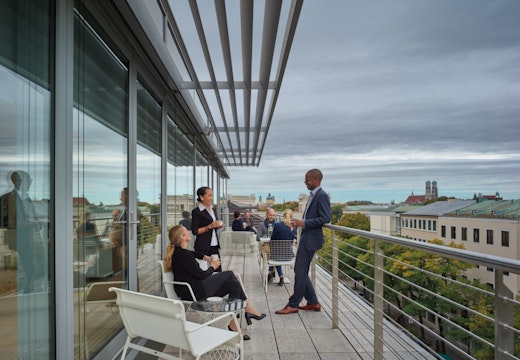New social performance phase launched for Fitwel certification scheme
Healthy building certification platform Fitwel has launched phase two of its assessment solution that quantifies social performance of buildings
Fitwel, a platform that certifies the impact of buildings on occupier health, has launched phase two of its assessment solution that quantifies social performance of buildings by overlaying health research and financial data to identify strategies that support stakeholders and asset values.
Phase one was successfully piloted last year with sustainability advisor EVORA Global. This stage saw an exclusive cohort of some of the largest commercial real estate owners and asset managers enlisted worldwide.
Applicable at a portfolio level, the certification pathway has proven to be essential for verifying the ‘S’, or social, data for real estate. It addresses growing demand for a rigorous and standardised approach to integrating social metrics, including health and wellbeing measures, into environment, social and governance (ESG) reporting.
First introduced in 2023 under the name Certified Metrics, the latest solution is called Social Performance by Fitwel. It realises the potential for an entity-wide ESG solution by offering a complementary pathway to Fitwel’s asset certification, addressing a key market gap.
Together, the existing asset-level certification and Social Performance provide 100 per cent portfolio assessment, says Fitwel, allowing asset managers and investors to generate portfolio-wide insights for social and material risk; optimise asset performance by generating gap analysis based on ‘S’ criteria; report on goal-based performance with third-party certified data; compare performance against industry peers; and include all assets in certification assessments.
Pilot users
QuadReal Property Group was an early adopter of Social Performance and, as a pilot user, provided input to help shape the tool to be ready for market.
Explaining how the Social Performance report enabled the group to delve deeper into understanding the health aspects of its portfolio and how it compares with peers, Jamie Gray-Donald, the firm’s senior vice-president, sustainability and EHS, said: ‘We’ve been an early user of the Fitwel certification programme to support our approach to health and wellness, and Social Performance provides the benchmarking summary. It allows us to continue refining specific health-promoting initiatives across the portfolio in a thoughtful and strategic way.’
Another pilot participant was PGIM Real Estate, which used Social Performance to generate reports highlighting specific areas for investment and improvement on environmental quality, stakeholder engagement, active living, and biophilic design.
Christina Hill, the company’s global asset manager and head of sustainability commented: ‘By incorporating insights from Social Performance into our strategy, we’re creating a foundation for data-driven decision-making and long-term sustainability.’
Investor difficulties
While voluntary ESG reporting has become the norm, nearly half of investors find the ‘S’ to be the most difficult ESG factor to codify, analyse and embed into investment strategies, according to a 2022 Deloitte survey.
At the same time, in the European market, anticipated reporting regulations will require more stringent reporting standards for ESG metrics, particularly as commercial real estate companies in Europe prepare for their first round of corporate sustainability reporting under EU rules.
The new social performance solution is the result of analysis by Fitwel’s non-profit research arm, the Center for Active Design, on the economic impacts of the evidence-based strategies included in the Fitwel standard. This led to the identification of a subset of strategies deemed to have the greatest impact on not only occupant and community health but also material risk and financial value.
The initial pilot of Social Performance was led by Fitwel Leadership Advisory Board (LAB) members, including BGO; Harrison Street; Hudson Pacific Properties; Lendlease Americas; PGIM; QuadReal Property Group; and Vornado Realty Trust. It later expanded to a larger pilot cohort, including Barings, Kayne Anderson Real Estate, Fabrix, and others.








